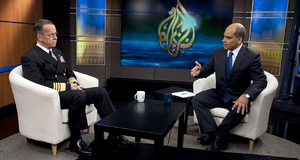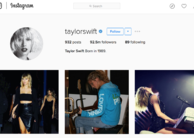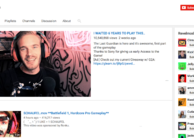Jon Stewart’s blatant criticism of Crossfire was completely unexpected, and the hype afterwards was understandably high. In March 2009, at the height of the financial crisis, Stewart began to heavily mock the financial news network CNBC. The initial mockery led to some of the most sustained criticism The Daily Show has offered of another network, and the multiple exchanges were rapidly hyped up by the news networks on the airwaves and online. This first video segment is the initial criticism that The Daily Show aired:
The Daily Show with Jon Stewart: CNBC Financial Advice
One of the most prominent themes in the segment is that there is a gap between how CNBC advertises itself and what it is. Stewart establishes that CNBC promotes itself as the “network that has the information and experience that you need.” In other words, the network claims that it should be used as the source for an individual’s financial advice. People only “[had] to tune into CNBC shows” in order to inform themselves about the financial process and make educated investment decisions. Yet, the advice that the network offered resulted in being the opposite of what should have been done. Since the “experts” were unable offer sound advice, Stewart argues that the American public was unfairly targeted by many of the CNBC anchors as making poor investments. The homeowners may be partly to blame for accepting unrealistic terms on their mortgages or other loans; however, Stewart believes that it is wrong for CNBC to accuse homeowners of not making smart decisions when CNBC anchors made the incorrect and misleading calls. Stewart mocks CNBC further: “If I had only followed CNBC’s advice, I’d have a million dollars today – provided I started with a hundred million dollars.”
In addition, Stewart suggests that the quality of CNBC reporting is poor. He ridicules the fact that the anchors are surprised that the CEOs’ own companies are doing well and are trusting the CEOs to provide accurate information. Also, in the concluding series of video clips, he provides multiple examples of CNBC reporters questioning the CEOs of companies about frivolous or irrelevant topics. For a network with such access to CEOs, CNBC, according to Stewart, does not use its experience and expertise in an effective and constructive manner.
The video clip “CNBC Financial Advice” began the exchanges between The Daily Show and CNBC. Subsequently, Jim Cramer, the host of CNBC’s program Mad Money with Jim Cramer, responded to Stewart’s criticism of the network. Cramer specifically claimed that The Daily Show took a quote of his out of context, suggesting that he was advocating buying Bear Sterns stock. Although Cramer does assert that Bear Sterns is “fine” and “not in trouble,” Stewart does acknowledge that Cramer technically was not advocating buying Bear Sterns. Stewart, in response, though, then shows two other instances of Cramer speaking optimistically of Bear Sterns, including one of Cramer explicitly recommending that people buy Bear Sterns. Cramer does not just make one judgment error; he makes several on the same topic, even after the market has shifted repeatedly. Nevertheless, no person, despite his or her knowledge and expertise, is perfect. Therefore, Stewart’s greatest qualm is in regard to the misleading manner in which Mad Money is promoted. The slogan of Cramer’s program is “In Cramer We Trust,” which conveys extreme confidence in Cramer’s advice. Stewart, in apparent fake laughter, mocks “they replaced God’s name with Cramer’s” to reinforce the intentional implication of the name swap.
The series of exchanges continues the following day as Cramer makes his rounds on other cable news programs to discuss the Stewart/Cramer feud. Regardless of whether or not Stewart is correct in his claims, The Daily Show received significant attention from other networks and programs. At one point, Joe Scarborough, the host of MSNBC’s Morning Joe, inquires sarcastically whether Jon Stewart can predict what the market will do. Stewart, on The Daily Show that night, responds as follows: “I don’t know what the markets are going to do… that’s why I don’t make the claim to any authority. That’s why my network doesn’t have the slogan “In Stewart We Trust” – they don’t want people to think I’m God.”
The climax of the exchanges between Stewart and Cramer occurs when Jim Cramer comes on The Daily Show as a guest. In one of the most unusual interviews in the program’s history, the humor was severely lacking. The result is a very revealing three-part discussion about the financial crisis:
The Daily Show with Jon Stewart: Jim Cramer Extended Interview Part 1
The Daily Show with Jon Stewart: Jim Cramer Extended Interview Part 2
The Daily Show with Jon Stewart: Jim Cramer Extended Interview Part 3
In the well-prepared extended interview, Stewart addresses and challenges the very framework of financial reporting as it was currently being practiced. Building on previously mentioned notions, Stewart asserts directly to Cramer that there “is [a] gap between what CNBC advertises itself as and what it is, and the help that people need.” Stewart continues using The Daily Show as an example: “we are both snake oil salesmen to a certain extent, but we do label the show as snake oil here.”
Perhaps the most effective part of the interview is Stewart’s use of Internet clips of Cramer being interview about his work as a hedge fund manager. Referring to one of the tapes explaining the dishonest strategies that take place in the financial system, Stewart affirms, “I want the Jim Cramer on CNBC to protect me from that Jim Cramer.” In essence, Stewart suggests a gap in how Cramer presents himself, since he and all others with similar knowledge of the system apparently understand the devious methods being employed. Stewart turns his argument into accusation: “It feels like we are capitalizing your adventure by our pension and our hard earned money – and that it is a game that you know, that you know is going on, but that you go on television as a financial network and pretend isn’t happening.”
Although fairly conciliatory, Cramer defends himself by saying that he, like Stewart, is attempting to engage his audience in financial news. Stewart is highly critical of this intention and objective because of the gravity of the situation and the impact that financial decisions can have on an individual, family, company, or organization. Through a series of online clips, Stewart establishes that Cramer had at least some knowledge of what was occurring in the financial system, and he vociferously attacks Cramer:
“I understand that you want to make finance entertaining, but it’s not a fucking game. When I watch that… I can’t tell you how angry it makes me because it says to me, you all know… You knew what the banks were doing and yet were touting it for months and months – the entire network was. And so now to pretend that this was some sort of crazy, once-in-a-lifetime tsunami that nobody could have seen coming is disingenuous at best and criminal at worst.”Continued on Next Page »
1.) Baym, Geoffrey. “The Daily Show: Discursive Integration and the Reinvention of Political Journalism.” Political Communication. 2005. 22: 3, 259-276.
Brewer, Paul R. and Emily Marquardt. “Mock News and Democracy: Analyzing The Daily Show.” Atlantic Journal of Communication. Lawrence Erlbaum Associates, Inc. 2007. 15:4, 249-267.
4.) “Remembering Anna.” The Daily Show with Jon Stewart. Comedy Central. February 12, 2007. Web. October 26, 2010. <http://www.thedailyshow.com/watch/mon-february-12-2007/remembering-anna>.
5.) “Shut Up Mark Sanford.” The Daily Show with Jon Stewart. Comedy Central. July 12, 2009. Web. October 26, 2010. <http://www.thedailyshow.com/watch/thu-july-2-2009/shut-up--mark-sanford>.
6.) “The Wedding of the Century of the Millennium.” The Daily Show with Jon Stewart. Comedy Central. August 2, 2010. Web. October 26, 2010. <http://www.thedailyshow.com/watch/mon-august-2-2010/wedding-of-the-decade-of-the-century-of-the-millennium >.
“Headlines Duke Lacrosse Rape Allegations.” The Daily Show with Jon Stewart. Comedy Central. April 18, 2006. Web. October 26, 2010. <http://www.thedailyshow.com/watch/tue-april-18-2006/headlines---duke-lacrosse-rape-allegations>.
9.) “Headlines Duke Lacrosse Rape Allegations.” The Daily Show with Jon Stewart. Comedy Central. April 18, 2006. Web. October 26, 2010. <http://www.thedailyshow.com/watch/tue-april-18-2006/headlines---duke-lacrosse-rape-allegations>.
10.) “Journalism, Satire or Just Laughs? ‘The Daily Show with Jon Stewart,’ Examined.” Pew Research Center’s Project for Excellence in Journalism. N.p., May 8, 2008. Web. October 26, 2010. <http://www.journalism.org/node/10953>.
11.) Who the f@#k is that guy? – Political Experts.” The Daily Show with Jon Stewart. Comedy Central. October 22, 2008. Web. October 28, 2010. <http://www.thedailyshow.com/watch/wed-october-22-2008/who-the-f--k-is-that-guy----political-experts>.
13.) “Hi Tech News Coverage.” The Daily Show with Jon Stewart. Comedy Central. January 9, 2008. Web. October 28, 2010. <http://www.thedailyshow.com/watch/wed-january-9-2008/hi-tech-news-coverage>.
14.) “Speech Therapy.” The Daily Show with Jon Stewart. Comedy Central. January 28, 2010. Web. November 4, 2010. <http://www.thedailyshow.com/watch/thu-january-28-2010/speech-therapy---post-racial>.
15.) “CNN Leaves It There.” The Daily Show with Jon Stewart. Comedy Central. October 12, 2009. Web. November 1, 2010. <http://www.thedailyshow.com/watch/mon-october-12-2009/cnn-leaves-it-there>.
17.) “CNN Leaves It There.” The Daily Show with Jon Stewart. Comedy Central. October 12, 2009. Web. November 1, 2010. <http://www.thedailyshow.com/watch/mon-october-12-2009/cnn-leaves-it-there>.
18.) “MSNBC Left Behind.” The Daily Show with Jon Stewart. Comedy Central. October 11, 2010. Web. November 3, 2010. <http://www.thedailyshow.com/watch/mon-october-11-2010/msnbc-left-behind>.
19.) “Keith Olbermann’s Name Calling.” The Daily Show with Jon Stewart. Comedy Central. January 21, 2010. Web. November 4, 2010. <http://www.thedailyshow.com/watch/thu-january-21-2010/special-comment---keith-olbermann-s-name-calling>.
20.) “Speech Therapy.” The Daily Show with Jon Stewart. Comedy Central. January 28, 2010. Web. November 4, 2010. <http://www.thedailyshow.com/watch/thu-january-28-2010/speech-therapy---post-racial>.
21.) “Fox News.Com.” Fox News Network, LLC. November 4, 2010. 2010. <http://www.foxnews.com/>.
22.) “For Fox Sake.” The Daily Show with Jon Stewart. Comedy Central. October 29, 2009. Web. November 4, 2010. <http://www.thedailyshow.com/watch/thu-october-29-2009/for-fox-sake->.
24.) “Anchor Management.” The Daily Show with Jon Stewart. Comedy Central. March 3, 2010. Web. November 4, 2010. <http://www.thedailyshow.com/watch/wed-march-3-2010/anchor-management>.
“Gretchen Carlson Dumbs Down.” The Daily Show with Jon Stewart. Comedy Central. December 8, 2009. Web. November 6, 2010. <http://www.thedailyshow.com/watch/tue-december-8-2009/gretchen-carlson-dumbs-down>.
“Sean Hannity Uses Glenn Beck’s Protest Footage.” The Daily Show with Jon Stewart. Comedy Central. November 10, 2009. Web. November 6, 2010. <http://www.thedailyshow.com/watch/tue-november-10-2009/sean-hannity-uses-glenn-beck-s-protest-footage>.
33.) “Sean Hannity Apologizes to Jon.” The Daily Show with Jon Stewart. Comedy Central. November 12, 2009. Web. July 16, 2011. <http://www.thedailyshow.com/watch/thu-november-12-2009/sean-hannity-apologizes-to-jon>.
34.) “Are You Ready For Some Midterms? – MSNBC’s Political Narrative.” The Daily Show with Jon Stewart. Comedy Central. September 9, 2010. Web. November 6, 2010. <http://www.thedailyshow.com/watch/thu-september-9-2010/are-you-ready-for-some-midterms----msnbc-s-political-narrative>.
35.) “Kurtz criticizes Hannity's "careful editing" of Obama speech: "Isn't that kind of editing, what's the word, deceptive?" Media Matters For America. September 12, 2010. Web. November 6, 2010. >.
36.) “Bernie Goldberg Fires Back.” The Daily Show with Jon Stewart. Comedy Central. April 20, 2010. Web. November 6, 2010. <http://www.thedailyshow.com/watch/tue-april-20-2010/bernie-goldberg-fires-back>.
37.) “Top TV Feuds: Jon Stewart vs. Crossfire.” TIME. Time.com. 2010. <http://www.time.com/time/specials/packages/article/0,28804,1884499_1884515_1884462,00.html>.
Gollmitzer, Mirjam. "Towards a Media Incidents Theory: How "Adversarial Guests" Ruin Programs and Liberate the Audience."Conference Papers -- International Communication Association(2009): 1-20. Communication & Mass Media Complete. EBSCO. Web. 20 Nov. 2010.
44.) Douthat, Ross. “Can CNN Be Saved?” The New York Times. April 4, 2010. <http://www.nytimes.com/2010/04/05/opinion/05douthat.html>.
Snow, Nancy. “Jon Stewart: Still the Most Trusted Newscaster in America.” The Huffington Post. July 23, 2009. <http://www.huffingtonpost.com/nancy-snow/jon-stewart-still-the-mos_b_243646.html>.
47.) Gollmitzer, Mirjam. "Towards a Media Incidents Theory: How "Adversarial Guests" Ruin Programs and Liberate the Audience."Conference Papers -- International Communication Association(2009): 1-20.Communication & Mass Media Complete. EBSCO. Web. 20 Nov. 2010.
“CNBC Financial Advice.” The Daily Show with Jon Stewart. Comedy Central. March 4, 2009. Web. November 20, 2010. <http://www.thedailyshow.com/watch/wed-march-4-2009/cnbc-financial-advice>.
52.) Cramer, Jim. “Cramer Takes on White House, Frank Rich, and Jon Stewart.” The Street. MainStreet.com. March 10, 2009. <http://www.mainstreet.com/article/moneyinvesting/news/cramer-takes-white-house-frank-rich-and-jon-stewart?page=4>.
“In Cramer We Trust.” The Daily Show with Jon Stewart. Comedy Central. March 9, 2009. Web. November 20, 2010. <http://www.thedailyshow.com/watch/mon-march-9-2009/in-cramer-we-trust>.
“Basic Cable Personality Clash Skirmish.” The Daily Show with Jon Stewart. Comedy Central. March 10, 2009. Web. November 20, 2010. <http://www.thedailyshow.com/watch/tue-march-10-2009/basic-cable-personality-clash-skirmish--09>.
“Jim Cramer Extended Interview Pt. 1.” The Daily Show with Jon Stewart. Comedy Central. March 12, 2009. Web. November 21, 2010. <http://www.thedailyshow.com/watch/thu-march-12-2009/jim-cramer-extended-interview-pt--1>.
“Jim Cramer Extended Interview Pt. 2.” The Daily Show with Jon Stewart. Comedy Central. March 12, 2009. Web. November 21, 2010. <http://www.thedailyshow.com/watch/thu-march-12-2009/jim-cramer-extended-interview-pt--2>.
“Jim Cramer Extended Interview Pt. 3.” The Daily Show with Jon Stewart. Comedy Central. March 12, 2009. Web. November 21, 2010. <http://www.thedailyshow.com/watch/thu-march-12-2009/jim-cramer-extended-interview-pt--3>.
64.) Snow, Nancy. “Jon Stewart: Still the Most Trusted Newscaster in America.” The Huffington Post. July 23, 2009. <http://www.huffingtonpost.com/nancy-snow/jon-stewart-still-the-mos_b_243646.html>.
65.) France, Lisa Respers. “Stewart seen as winner in Showdown with Cramer.” March 19, 2009. CNN.com. 2009. <http://www.cnn.com/2009/SHOWBIZ/TV/03/13/cramer.stewart.reaction/index.html?iref=allsearch>.
66.) Carlson, Tucker. “How Jon Stewart Went Bad.” The Daily Beast: Blogs & Stories. March 18, 2009. RTST, Inc. 2010. <http://www.thedailybeast.com/blogs-and-stories/2009-03-18/how-jon-stewart-went-bad/>.
67.) Fisher, Luchina. “Jon Stewart Wins Cramer Showdown.” March 13, 2009. ABC News Internet Ventures. 2010. <http://abcnews.go.com/Entertainment/Television/story?id=7075368&page=1>.
68.) Cohen, Richard. “Don’t Blame Jim Cramer.” The Washington Post. March 17, 2009. <http://www.washingtonpost.com/wpdyn/content/article/2009/03/16/AR2009031602319.html>.
France, Lisa Respers. “Stewart seen as winner in Showdown with Cramer.” March 19, 2009. CNN.com. <http://www.cnn.com/2009/SHOWBIZ/TV/03/13/cramer.stewart.reaction/index.html?iref=allsearch>.
“Journalism, Satire or Just Laughs? ‘The Daily Show with Jon Stewart,’ Examined.” Pew Research Center’s Project for Excellence in Journalism. N.p., May 8, 2008. Web. October 26, 2010. <http://www.journalism.org/node/10953>.
72.) “Mike Huckabee Pt.2.” The Daily Show with Jon Stewart. Comedy Central. December 9, 2008. Web. April 21, 2011. <http://www.thedailyshow.com/watch/tue-december-9-2008/mike-huckabee-pt--2>.
“Newt Gingrich.” The Daily Show with Jon Stewart. Comedy Central. February 9, 2010. Web. April 21, 2011. <http://www.thedailyshow.com/watch/tue-february-9-2010/newt-gingrich>.
“Exclusive John Yoo Extended Interview Pt.1.” The Daily Show with Jon Stewart. Comedy Central. January 11, 2010. Web. April 21, 2011. <http://www.thedailyshow.com/watch/mon-january-11-2010/exclusive---john-yoo-extended-interview-pt--1>.
77.) “Exclusive Marc Thiessen Extended Interview Pt.1.” The Daily Show with Jon Stewart. Comedy Central. March 9, 2010. Web. April 21, 2011. <http://www.thedailyshow.com/watch/tue-march-9-2010/exclusive---marc-thiessen-extended-interview-pt--1>.
78.) Douthat, Ross. “Can CNN Be Saved?” The New York Times. April 4, 2010. <http://www.nytimes.com/2010/04/05/opinion/05douthat.html>.
79.) “Exclusive John Yoo Extended Interview Pt.3.” The Daily Show with Jon Stewart. Comedy Central. January 11, 2010. Web. April 21, 2011. <http://www.thedailyshow.com/watch/mon-january-11-2010/exclusive---john-yoo-extended-interview-pt--3>.
80.) “Barack Obama Pt.1.” The Daily Show with Jon Stewart. Comedy Central. October 27, 2010. Web. April 30, 2011. <http://www.thedailyshow.com/watch/wed-october-27-2010/barack-obama-pt--1>.
81.) “Eye to Eye: Obama on Stewart (CBS News).” CBS News. YouTube. August 23, 2007. <http://www.youtube.com/watch?v=6f3nQPJfgPo&feature=fvw>.
“Journalism, Satire or Just Laughs? ‘The Daily Show with Jon Stewart,’ Examined.” Pew Research Center’s Project for Excellence in Journalism. N.p., May 8, 2008. Web. October 26, 2010. <http://www.journalism.org/node/10953>.
84.) Douthat, Ross. “Can CNN Be Saved?” The New York Times. April 4, 2010. <http://www.nytimes.com/2010/04/05/opinion/05douthat.html>.
85.) Baym, Geoffrey. “The Daily Show: Discursive Integration and the Reinvention of Political Journalism.” Political Communication. 2005. 22: 3, 259-276.
86.) “So You Think You Can Douche.” The Daily Show with Jon Stewart. Comedy Central. July 29, 2009. Web. April 30, 2011. <http://www.thedailyshow.com/watch/wed-july-29-2009/so-you-think-you-can-douche>.
87.) “Sarah Palin Gender Card.” The Daily Show with Jon Stewart. Comedy Central. September 3, 2008. Web. April 30, 2011. <http://www.thedailyshow.com/watch/wed-september-3-2008/sarah-palin-gender-card>.
88.) “Sarah Palin Gender Card.” The Daily Show with Jon Stewart. Comedy Central. September 3, 2008. Web. April 30, 2011. <http://www.thedailyshow.com/watch/wed-september-3-2008/sarah-palin-gender-card>.
89.) “Postcards From the Pledge.” The Daily Show with Jon Stewart. Comedy Central. September 23, 2010. Web. April 30, 2011. <http://www.thedailyshow.com/watch/thu-september-23-2010/postcards-from-the-pledge>.
90.) “Postcards From the Pledge.” The Daily Show with Jon Stewart. Comedy Central. September 23, 2010. Web. April 30, 2011. <http://www.thedailyshow.com/watch/thu-september-23-2010/postcards-from-the-pledge>.
“Moral Kombat.” The Daily Show with Jon Stewart. Comedy Central. May 14, 2009. Web. April 30, 2011. <http://www.thedailyshow.com/watch/thu-may-14-2009/moral-kombat>.
93.) Shear, Michael. “From Jon Stewart, Echoes of G.O.P. Past.” The New York Times. September 24, 2010. <http://thecaucus.blogs.nytimes.com/2010/09/24/from-jon-stewart-echoes-of-g-o-p-past/?scp=1&sq=jon%20stewart%20postcards%20from%20the%20pledge&st=cse>.
94.) Gore, Al. The Assault on Reason. Penguin Books. New York, NY. 2007. 111.
95.) “I Give Up – 9/11 Responders.” The Daily Show with Jon Stewart. Comedy Central. August 4, 2010. Web. April 30, 2011. <http://www.thedailyshow.com/watch/wed-august-4-2010/i-give-up---9-11-responders-bill>.
96.) “Republicans Block 9/11 Health Care Bill.” The Daily Show with Jon Stewart. Comedy Central. December 9, 2010. Web. April 30, 2011. <http://www.thedailyshow.com/watch/thu-december-9-2010/republicans-block-9-11-health-care-bill>.
97.) “Worst Responders.” The Daily Show with Jon Stewart. Comedy Central. December 16, 2010. Web. April 30, 2011. <http://www.thedailyshow.com/watch/thu-december-16-2010/worst-responders>.
98.) “9/11 First Responders React to the Senate Filibuster.” The Daily Show with Jon Stewart. Comedy Central. December 16, 2010. Web. April 30, 2011. <http://www.thedailyshow.com/watch/thu-december-16-2010/9-11-first-responders-react-to-the-senate-filibuster>.
99.) “Exclusive – Mike Huckabee Extended Interview.” The Daily Show with Jon Stewart. Comedy Central. December 16, 2010. Web. April 30, 2011. <http://www.thedailyshow.com/watch/thu-december-16-2010/exclusive---mike-huckabee-extended-interview>.
100.) Newton-Small, Jay. “Did Jon Stewart Turn the Tide on the 911 First Responders Bill?” TIME: Swampland. December 20, 2010. Time, Inc. 2011. <http://swampland.blogs.time.com/2010/12/20/did-jon-stewart-turn-the-tide-on-the-911-first-responders-bill/>.
101.) “New Hope for 9/11 Heroes.” FOX NEWS. Fox News Network, LLC. December 20, 2010. <http://video.foxnews.com/v/4469087/new-hope-for-911-heroes>.
102.) Hernandez, Raymond. “Senate Passes 9/11 Health Bill as Republicans Back Down.” The New York Times. December 22, 2010. <http://www.nytimes.com/2010/12/23/nyregion/23health.html?_r=1>.
103.) Madison, Lucy. “White House Lauds Jon Stewart for Pushing Passage of 9/11 Health Bill.” CBS News.com. Political Hotsheet. December 21, 2010. <http://www.cbsnews.com/8301-503544_162-20026333-503544.html>.
Carter, Bill and Brian Stelter. “In ‘Daily Show’ Role on 9/11 Bill, Echoes of Murrow.” The New York Times. December 26, 2010. <http://www.nytimes.com/2010/12/27/business/media/27stewart.html?pagewanted=1&_r=1>.
“Kirsten Gillibrand.” The Daily Show with Jon Stewart. Comedy Central. January 4, 2011. Web. April 30, 2011. <http://www.thedailyshow.com/watch/tue-january-4-2011/kirsten-gillibrand>.
Baym, Geoffrey. “The Daily Show: Discursive Integration and the Reinvention of Political Journalism.” Political Communication. 2005. 22: 3, 259-276.
110.) Stelter, Brian. “In Visit to Fox News, Jon Stewart Faults Fox News.” The New York Times. February 5, 2010. <http://www.nytimes.com/2010/02/06/arts/television/06fox.html?scp=2&sq=jon%20stewart&st=cse>.
111.) “Entire Jon Stewart Interview.” FOX NEWS. Fox News Network, LLC. February 4, 2010. <http://video.foxnews.com/v/4003531/entire-jon-stewart-interview/>.

















